Abe's "national funeral", set off thousands of waves in Japan ...
Author:Global Times Time:2022.09.12
Writing/Nine Life Knife & Water Broken Knife
On September 27th, Abe's "national funeral" of Shinzo Waoman, Tokyo Kita Park will be held.
This means that Abe will become the second person in Japan to enjoy the "national funeral" treatment after the war.
The Japanese government said on September 6 that the additional cost of "national funeral" was about 1.4 billion yen (about 69 million yuan). The additional cost of 1.4 billion yen announced includes 800 million yen in police costs and 600 million yen for foreign reception fees.
Coupled with the venue layout fee, the total amount will reach approximately 1.66 billion yen (about 82 million yuan).
As soon as the news came out, the Japanese people who were dissatisfied with Abe's "national funeral" were even more annoyed.
Why do so many Japanese oppose "national funeral" for Abe?
What history is hidden behind the word "national funeral"? Where does Japan go in the future?
1
In fact, after Abe's assassination and death on July 8th, Prime Minister Kishida had considered holding a state funeral for him, but Ms. Abe Ms. Abe's Ms. Zhao Hui declined for "reduced personnel under the epidemic." Family funeral was held in Zengshang Temple, Tokyo. At that time, the outside world was generally speculated that the state funeral would not be carried out.
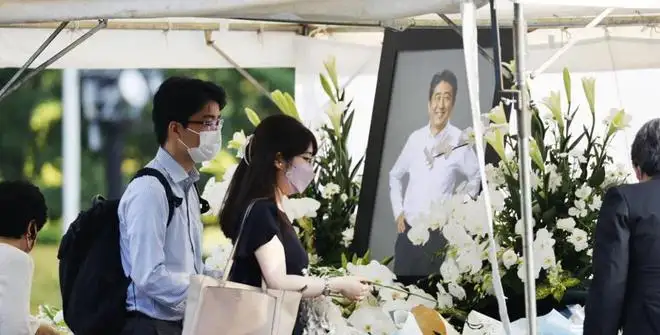
However, on the evening of July 14, Kishida Wenxiong officially announced that he would hold a national funeral for Abe, and the national funeral flower sales will be completely borne by the Japanese government.
As soon as the news came out, the Japanese country was uproar, and many people immediately opposed it.
On August 22, 17 Japanese writers, including Khuruo Chihezi, held press conferences and university professors to criticize the government to hold Abe's "national funeral" and violated the Constitution's spirit of "everyone's equality and freedom of thought".
On August 31, thousands of people protested in front of the main entrance of the Japanese Parliament Hall, saying that "the decision has not passed the parliament and has not discussed", "opposes national funeral, don't use my taxes."

On September 1, 345 plaintiffs filed a lawsuit in the Tokyo District Court, asking the Japanese government to stop holding "national funeral" for Abe. This is also the first time that the Japanese citizen group has filed a formal administrative lawsuit on this issue.
At present, the number of plaintiffs in the lawsuit has reached 576.
In addition, other civic groups filed similar lawsuits in local courts in Saitama, Yokohama, Osaka, and other places. Lawyers and local members of the citizens also appeared in various places to request the local government to prohibit the use of public funds from "national funeral".
The Japanese people are so opposed that the cost of high "national funeral" of 1.66 billion yen is an important reason -the "national funeral" funeral cost is paid by the government in full, and the tax paid by the people is used.
As Japanese netizens said, "I said it was 200 million yen before, and the increase in costs would be complained if they were borne by the Liberal Democratic Party members."
You know, today the Japanese yen has plummeted, and Japan's overall economy is sluggish. The Kishida government put the taxpayer's money into the funeral so openly, and it is no wonder that the people have strong dissatisfaction.
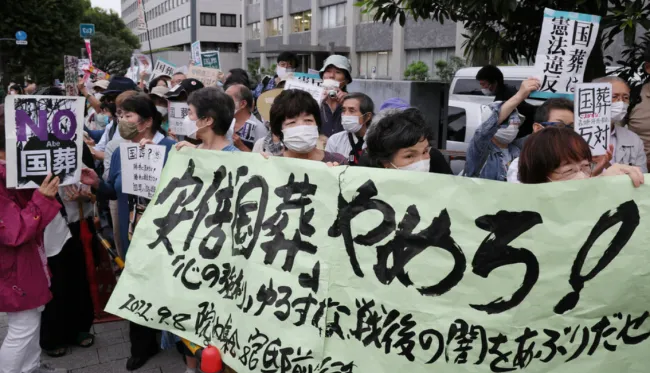
Another important reason for the dispute between the public is that Abe's relationship with "unified education" is too close.
After Abe's assassination, the public was very sensitive to the phenomenon of "unified education" for Japanese politics. The relationship between Abe and "unified education" has also worried many people to worry about "defense secrets".
In addition, some people and the opposition party questioned the "national funeral" proposed by Kishida and "no legal basis", requiring "the total cost of the cost".
Not only is it not optimistic inside, but the response to Abe's "national funeral" also responded mediocre.
The Japanese government has issued an invitation to the "national funeral" to the 195 diplomatic relations. However, some foreign politics are unable to participate in the news.
Earlier, U.S. President Biden, French President Macron, and former German Chancellor Merkel, considering visiting Japan, said they would not attend.
The Ministry of Foreign Affairs of Japan also said that "I hope that countries and regions will give a reply before mid -August, but" Modern Japanese Modern "pointed out that it has now reached September, but many countries have not responded.
A professor of international political science at Gao Qiansui University said, "Even former German Prime Minister Merkel, the longest time for Abe in G7, did not come. It was really surprising. Come to participate in the national funeral. "
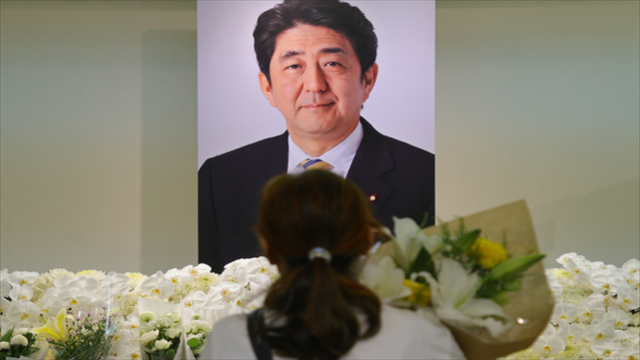
As the funeral approaches, Japan's domestic support rates have continued to fall.
At the beginning of September, the support rate of Kishida Cabinet fell to 48.1%, a decrease of 9.4 percentage points from August, and it was also the first time since the cabinet of October fell below 50%.
Police investigations conducted on the 10th and 11th showed that Kishida's support rate dropped to 41%, and the disapproval rate rose from 39%to 47%last time, close to half. This is also the first time that the dislocation rate exceeds the support rate.
This has nothing to do with the "national funeral" of the Kishida government ignoring the opinions of the people and the desire to hold a "national funeral".
As the voices of "national funerals" in Japan were getting louder, under pressure, on September 8, Kishida Wensu finally explained the relevant issues in Congress for the first time. This is also the first Congress of "national funeral".
Kishida stated that he accepted criticism, but insisted on "national funeral is suitable." He gave 4 major reasons for holding national funerals for Abe, including Abe's longest governing prime minister in the history of Japanese constitutional government, Abe left many political achievements, many countries expressed hanging mourning, Abe was shot dead during the election, so the country (therefore Government) It is necessary to show the attitude of guarding democracy.
However, the reasons given by Kishida set off a new round of questioning.
For example, Quan Jian Tai, the chairman of the Democratic Party of the Forman Party, questioned the laws of hosting the law of national funerals and the properness of expenses estimated. At the same time, the constitutional Democratic Party demanded that the national funeral is changed to "cabinet burial" and investigated the relationship between Abe's "unified education" and South Korea.
However, the Kishida government believes that it is less than 3 weeks before the national funeral holding date, and it is difficult to adjust the funeral method now, and it is planned to promote preparations as planned.
It is estimated that the "national funeral" argument will continue.
2
National funeral, as the name suggests, is a funeral held in the name of the country as a special merit.
In the past, Japan had the custom of a grand funeral after the emperor's death, and the name "national funeral" was officially used since the Meiji era.
According to the "National Funeral Order" before World War II, the characters who can enjoy national funeral treatment were basically those who believed that the Japanese government would make "great contributions" to Japan at that time. Only the royal family, the Duke, Marshal, and Prime Minister before the war can enjoy national funerals. treatment.
In 1947, Japan after World War II abolished the "National Funeral Order", and there was no legal basis for national funeral.
This is why many people oppose Abe's "national funeral" on a reason for "no legal basis".
However, in 1967, Sato, then Prime Minister of Japan, made a former Prime Minister Yoshida "made important contributions to Japan's restoration of democratization and economic recovery after World War II", and held a national funeral for Yoshida Mao. The only one who enjoys national funeral treatment.
At that time, Yoshida's funeral cost was 18.1 million yen, which was about 100 million yen today (about 4.86 million yuan).
And what is the scale of national funeral?
According to the "Records of the Old Yoshida Mao Guo Funeral Ceremony" written by the government, from its residence in Daji -cho, Kanagawa Prefecture to the Japanese martial arts hall, there are about 120,000 people who have carried the organic car carrying the ashes, the County Police and Police Department of the Police Department About 5700 police officers participated in the police work.
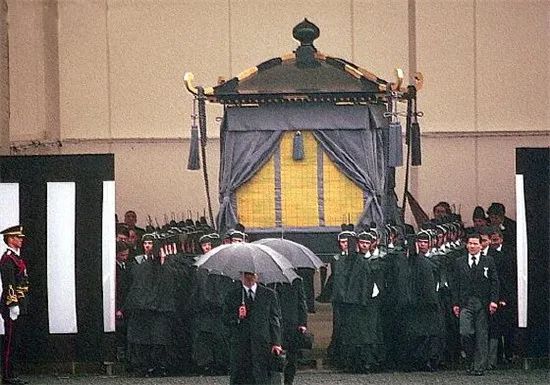
Not only did he attend the funeral, the prince and wife (now the emperor and wife), but also the diplomatic envoys of 72 countries. There is also the 19 ringing of the Japanese Self -Defense Force "Sound the Sky". The riot police was responsible for the total team of about 35,000 flower donors, and "a few invisible hard work", and there was no major trouble in the end.
But when Sato died, he was going to follow the national funeral and was opposed by many people in Japan. He said that there was no legal basis, and he should be discussed by Congress. Legal, judicial, and administrative decisions should be decided. Therefore, Sato's national funeral is not done. And only once "national funeral".
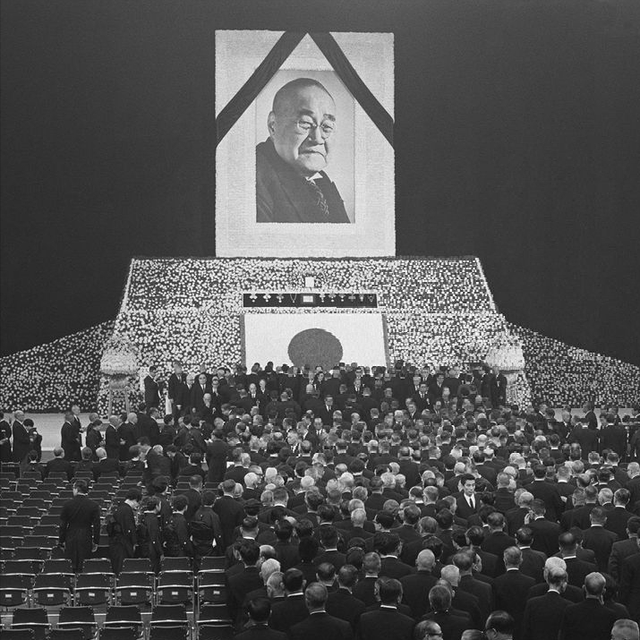
The "national funeral" is different from the "national funeral". The Japanese government only undertakes most of the funeral costs, and part of the costs require the party or the party of the family or the deceased to come out.
In addition, there are "Cabinet · Liberal Democratic Party Joint Buried", such as Prime Minister Da Ping Zhengfang, Zhong Zeng Kanghong, etc., all enjoyed the joint burial treatment of the cabinet · Liberal Democratic Party. This is also the specifications of the Abe's funeral in the opponent.
However, after about 55 years, the national funeral was pushed into the historical stage again.
It is said that Abe's national funeral will be held in the form of "no religion" at 2 pm on the 27th. The attendees will be the heads of the House of Representatives and the government, a member of the parliament, the foreign dignitaries, the local governments, and the representatives of various fields.
In addition, from 10 am to 4 pm on the day of the national funeral, a flower offering table was set up outside the martial arts hall of Japan. The provincial departments will also hang mourning flags on the day of the funeral.
However, in the case of not optimistic inside and outside, the response of Abe's national funeral on the 27th is still unknown ...
3
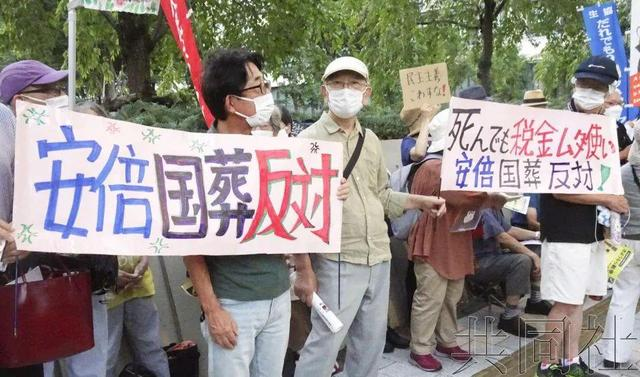
The issue of national funeral can be said to be one of the most difficult issues in Japanese politics. Some international relations scholars told the "Make -ups" that the current state of Kishida Wenxiong on the issue of national funeral is to advance and retreat, and ride tigers.
On the one hand, Kishida's decision is to consider its own support rate, and at the same time, it is also a member of the Liberal Democratic Party valve politics that stabilize the basic disk and hold the Abe.
On the other hand, as the former foreign minister of Abe's cabinet, Kishida hopes to use Abe's route in diplomacy, and also hopes to continue to promote the Abe route through national funerals, and also shows that he is an important heir of Abe.
As for the reasons for Kishida himself to explain the "national funeral" in Congress, Abe is the longest prime minister in governing in the history of Japanese constitutional government, and has made a great contribution to the revitalization of the Japanese economy. Questions.
In the wild party, it was clear that the longest time was to say that the prime minister Sato was the longest in power at that time. On the contribution, Sato Ryo took back Okinawa, and also proposed the "three principles of nuclear -free" without manufacturing, not having, and not transporting nuclear weapons, and won the Nobel Peace Prize. What's more, the Japanese economy was much better than now, at that time it was a period of high -speed growth.
However, because there was no unified opinion in Japan at that time, Sato Ryo had no national funeral.
In this way, Abe is a controversial person, and there is no legal basis. Now it is not appropriate to engage in national funeral. Coupled with the relationship between Abe and the unified religion of Abe, the death of the gun is not related to the unified teaching.
Therefore, in the case of this "cult" with Japanese politics for a long time, the Japanese also felt that they would have a national funeral.
On the one hand, the Kishida government says that the Liberal Democratic Party has to separate the relationship with the unified religion, and on the other hand, it must give the Abe family with a national funeral related to the unified teaching. Isn't this contradictory? Now "Abe Economics" has not made the people's lives better: prices rise, the rich and the poor, and the decline in substantial income, which are left by Abe. The new capitalist economy failed to solve these problems.
Judging from the perception, the explanation of Kishida is very weak in what the opposition party says. Kishida wants to cut support from the Liberal Democratic Party and unified teaching, but to wash and engage in national funerals for the Abe family, this is indeed logically incapable.
Experts point out that of course a democratic country must first consider public opinion, and Kishida also said to listen to public opinion. But what ordinary people do not want to include the people in, this is the trample of democracy. Therefore, several political parties in Japan, such as the Communist Party of Japan, Linghe and New Selection, and Social Democratic Party, have refused to participate in national funeral.
Japan has invited invitations to more than 100 countries and regions in the world, and now it is less than 10 real returns.
Kishida wants to engage in funeral diplomacy or hanging diplomacy through national funeral, trying to show the correctness of the Abe route to continue to promote the so -called "free and open Indo" to apply fat on his face.
Pictures from the network
Source: Make up one knife
- END -
The Ministry of Wudang released a picture of the "Queen of the British Queen Shoulder Shoulder
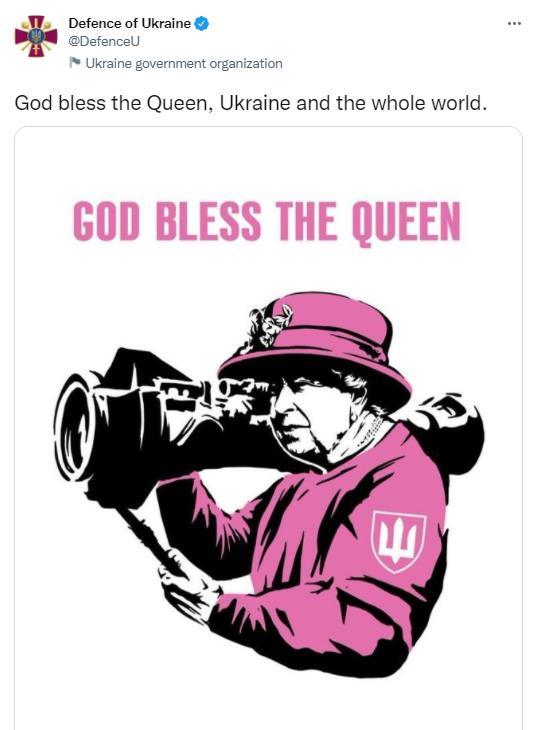
According to today's Russian TV (RT) reported on the 12th, the Ukraine Ministry of...
Former Japanese Prime Minister Shinzo Abe was shot and dived in the 225 index plate
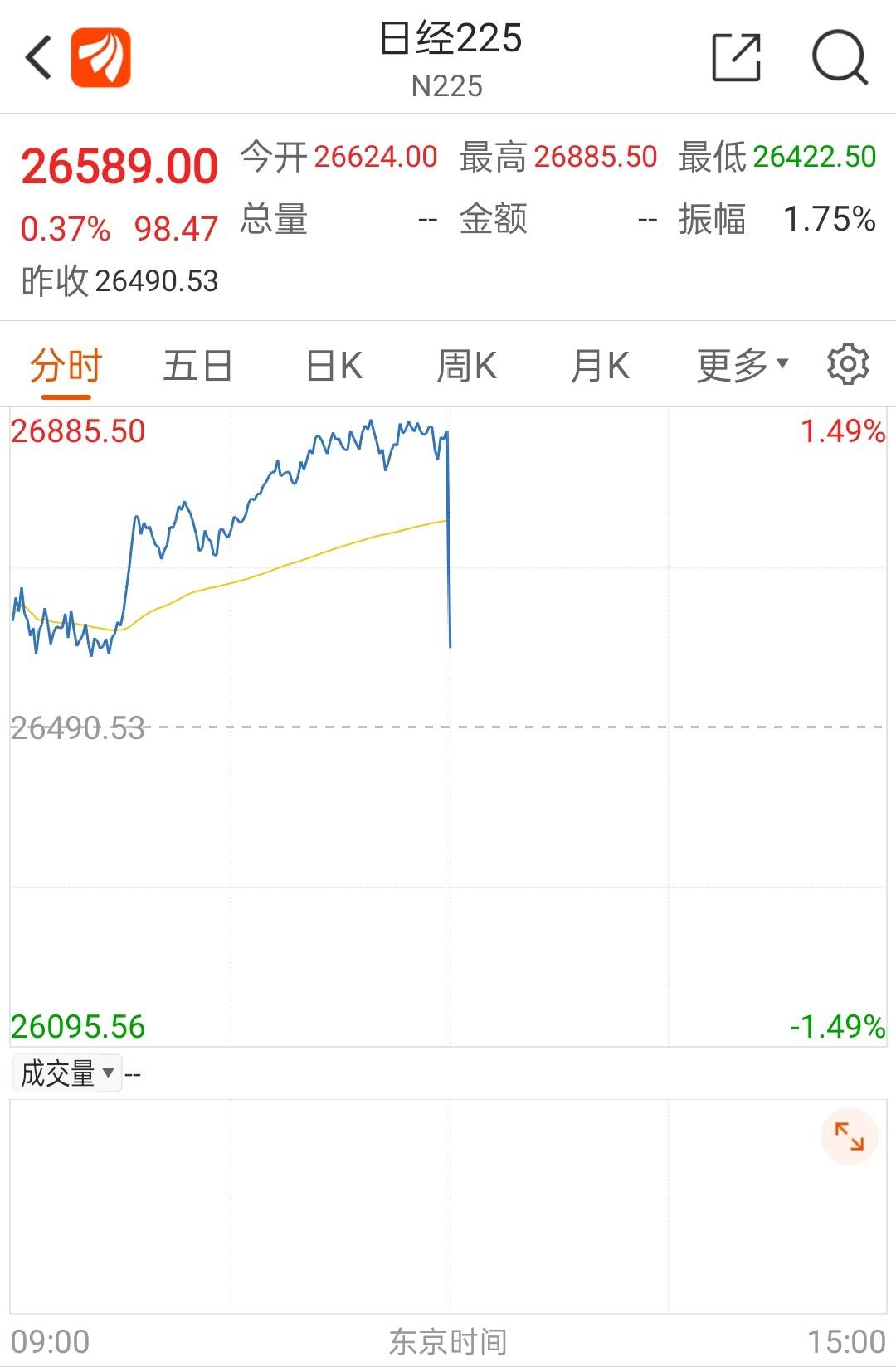
Cover Journalist Xiong YingyingAt 11 am on July 8th, the Nikkei 225 index turned g...